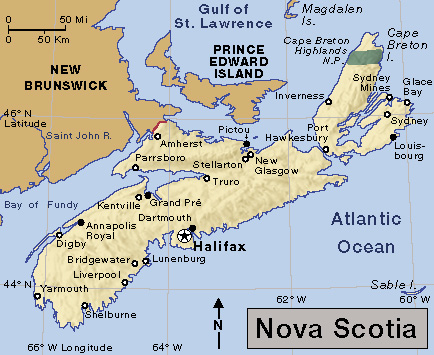Grand Pré, << gran pray, >> is a historic village on Minas Basin in Nova Scotia. It was one of the largest communities in Acadia, a region and French colony in what is now mostly eastern Canada. French colonists settled in Acadia in 1604 and founded Grand Pré about 1680. The French developed Grand Pré into a successful agricultural district that exported goods to nearby French and English towns.

In 1713, Britain gained control of the part of Acadia that is now the mainland of Nova Scotia. The British wanted the French-speaking peoples of Acadia to swear unconditional loyalty to Britain or leave Acadia, but the Acadians refused to do so. The struggle for power in Acadia in time brought disaster to Grand Pré. The Acadians made a final refusal of the British oath of allegiance in 1755. In response, the governor of Nova Scotia had Grand Pré burned and sent more than 2,000 people from the Grand Pré area into exile. The New England poet Henry Wadsworth Longfellow described this tragic event in his poem Evangeline. Today, Grand Pré contains a national historical park in memory of Acadian history.
